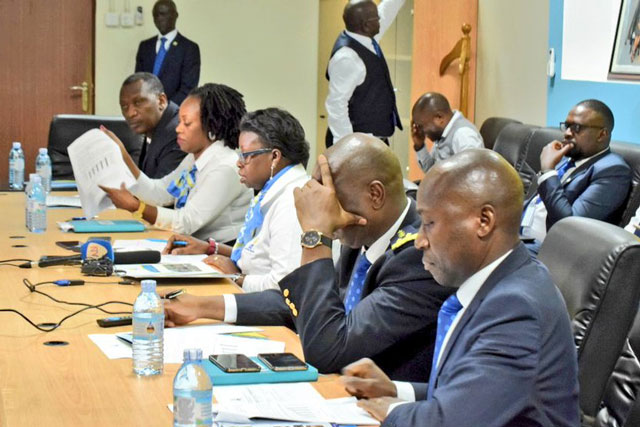
The second problem of URA is its limited capacity. Since it was created, URA has not enlarged its size (in terms of human resource) consistent with growth in the size and complexity of the economy. How many tax officials are deployed around the country to establish a wider and broader social map of economic activity? Very few! Because the tax law in Uganda, borrowed as best practice from Switzerland, is designed to punish noncompliance, in our context it seeks to deliberately kill 95% of real and potential taxpayers by threatening them away from formality.
Unable, therefore, to attract more businesses to register, tax-administration officials get stuck. When government puts URA under pressure to mobilise more tax revenues, it is done on an organisation with limited human resource capability to reach every potential taxpayer. Consequently officials at URA retreat to their records and look at those few registered taxpayers and seek to extract the last coin out of them, thereby making the price of compliance high. Every Ugandan who has set up a business and registered with URA will tell you horror stories of the organisation calling and harassing them for revenues, looking for every small law and excuse to demand they pay more taxes.
This is the real problem of tax administration in Uganda: the everlasting harassment of a few compliant taxpayers, which in turn threatens many from formality. This is why many people who try to open and register businesses complain that they were made to fail by URA. The Authority comes hard on them just when they are beginning to pickup. When it finds minor tax filing weaknesses, it imposes huge fines and compounded interest on them. The option is either to close shop and return to informality or to bribe officials of URA in order to save one’s business. Up until last year, many taxpayers had compounded interest penalties five times larger than the principle tax, an absurd situation in a country that should be trying to encourage its citizens to register to pay taxes.
Uganda needs to learn the reality of tax administration in an economy dependent on capital, a highly mobile factor of production, for tax revenues. Take the example of economies that were dependent on taxing land for revenue. One cannot hide land, making taxing it easy. But capital is easy to hide or disguise; so one needs the cooperation of the taxpayer to maximise tax receipts. The owner of capital, if badly handled, can also withhold their productive effort, and thereby reducing the possible tax returns.
Thus to maximise tax returns in an economy dependent on capital, one needs to listen to the concerns of the taxpayer and ascertain their needs. It is this reality that URA lacks, in large part because the law does not allow tax officials to exercise such understanding and discretion. The only thing that allows URA officials to exercise reasonableness is exchange of material favours i.e. corruption. The pathology of tax administration in Uganda is that it is corruption that has protected many small and big businesses from destruction under the weight of a rigid and unreasonable application of a tax code that is unsuited to our circumstances.
****
amwenda@independent.co.ug
 The Independent Uganda: You get the Truth we Pay the Price
The Independent Uganda: You get the Truth we Pay the Price



Andrew, I could not agree with you more on URA.
Andrew,the formal businesses in Uganda don’t pay tax. They are owned by untouchables in this country. Therefore, going formal may not save URA in Uganda. Whether changes are made a thousand times in URA,as long as we have individuals above the law in Uganda, revenue collections will remain low! Karl Marx,pointed out why Germany developed faster than other countries in Europe. The reason is in Germany everyone has to toe the line. This is exactly what is lacking in Uganda.
To an upcoming entrepreneur in Ugandan, evading tax is the most viable growth strategy to be embrace from celebrated Ugandan entrepreneurs.
I can assure you Andrew, whether you are appointed as commissioner general at URA,and you implement such ideas you have. The results will still remain the same.
The foreign investors that would pay taxes to URA get long term tax holidays after giving kick backs worth millions of dollars to powerful individuals, who then convince the president to give the foreign investors tax holidays. Then URA comes after poor Ugandans, who have very low capital to start with, purposely to run them out of business. Most of the enforcement officials at URA have never started or run a tomato stall and would never understand the pains of running a business in this economy.
The problem is not how much revenue is collected in a fiscal year (FY), but from what?. Government needs to find other ways of making money, not only revenue and tax as its sole source of income, its a grave misconception on the government side. Not forgetting that over taxing and revenue collection can drive businesses men out of trading. In the case of uganda enough businesses have ceased from trading in uganda and some have relocated to Burundi and South Sudan. Uganda’s exorbitant tax regime has failed miserably and the more demand for more and high taxing system will cause more exodus of potential investors to other regions in Eastern Africa.
Government needs to have its own clearing and forwarding company for purposes of effective monitoring and control of tax payment.
Most of the uncollected tax leak through the private clearing and forwarding firms.
The key point here is simply one; Uganda is a very disorganised state. Everyone would love to take advantage of such a situation be it informally or formally. We hv certain individuals who untouchable and touchable n this country who can influence systems either way. We hv institutions that can contain or even eliminate corruption but they cant simply because they ain’t given space to enforce their legislated mandate. Those advanced countries don’t hv the kind of politics we exercies in the third world. This is all down to leadership. Period.